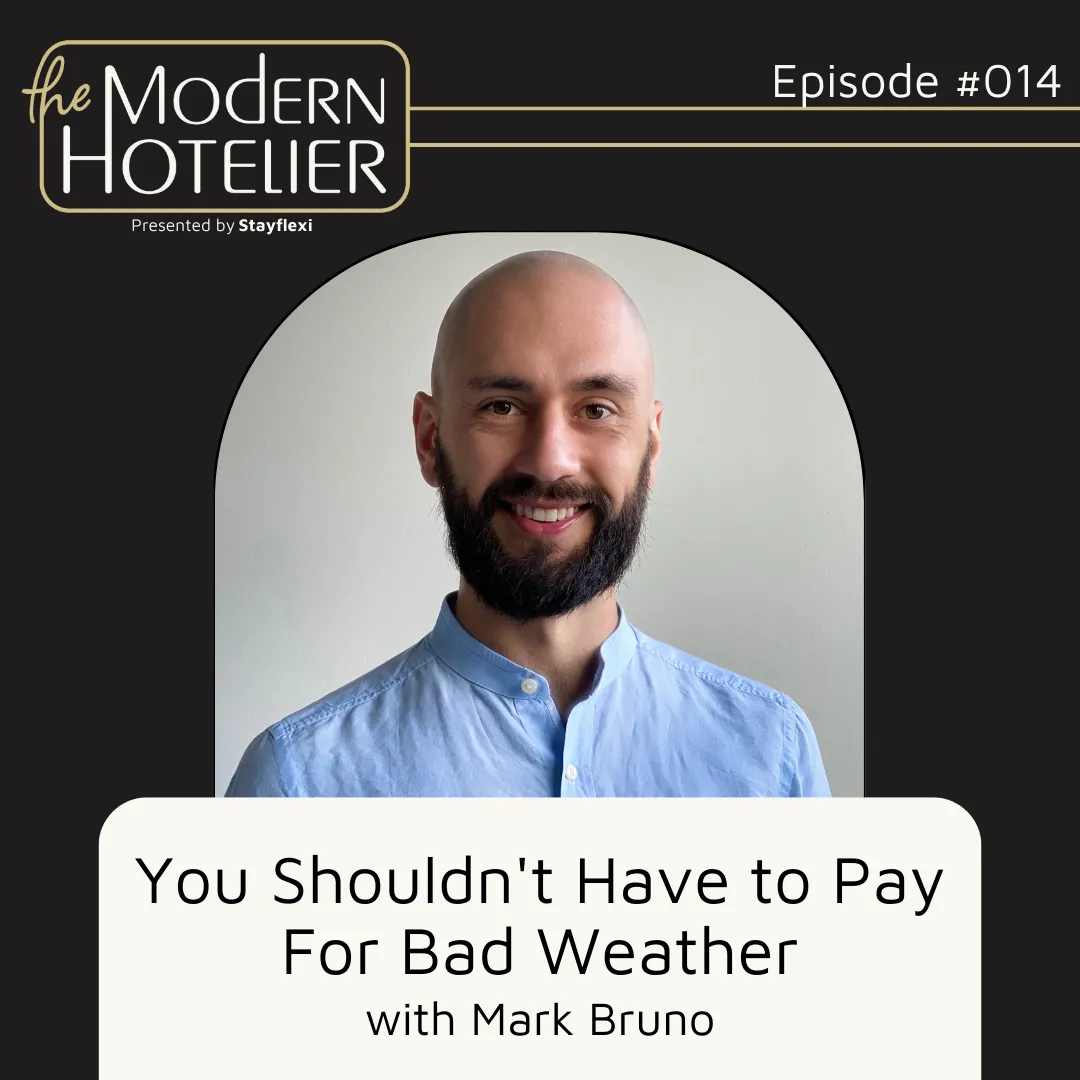The Independent Lodging Congress's Indie Cultivate helps to support innovation and start-ups in hospitality and travel. On this episode we announce and talk to the seed round winner.
You ever wish you could control the weather? Make the rain hold off until after your beach trip? You might not be able to prevent bad weather, but one company believes that you shouldn't have to pay for it.
The winner of ILC's Growth round is Sensible Weather. Sensible Weather is a climate risk technology company that de-risks weather for both travel partners and consumers. They offer a partner-branded Weather Guarantee service that automatically reimburses travelers when bad weather impacts their in-trip experience. Through proprietary climate data and risk analytics platform, they can calculate Weather Guarantee pricing in real time, generating new revenue for partners and enhanced experiences for travelers. Sensible believes that bad weather isn't something you should have to pay for.
In this episode you'll discover:
- Why you shouldn't have to pay for pad weather
- How constraints help companies do better
- How bad weather insurance works
- How to create a great work culture
The Modern Hotelier is presented by Stayflexi
Produced, edited, and published by Make More Media
Quotes
"Bad weather is not something you should have to pay for." - Mark Bruno
"Constraints are good. Constraints allow us to do better." - Mark Bruno
"It's a really cool value proposition to change behavior and really allow both guests to have a great vacation and for owners to manage their property in a better way." - Mark Bruno
Episode Links
Mark Bruno
Contact: Mark@sensibleweather.com
David Millili
Steve Carran
Transcript
Automatic Transcription - please excuse any errors

